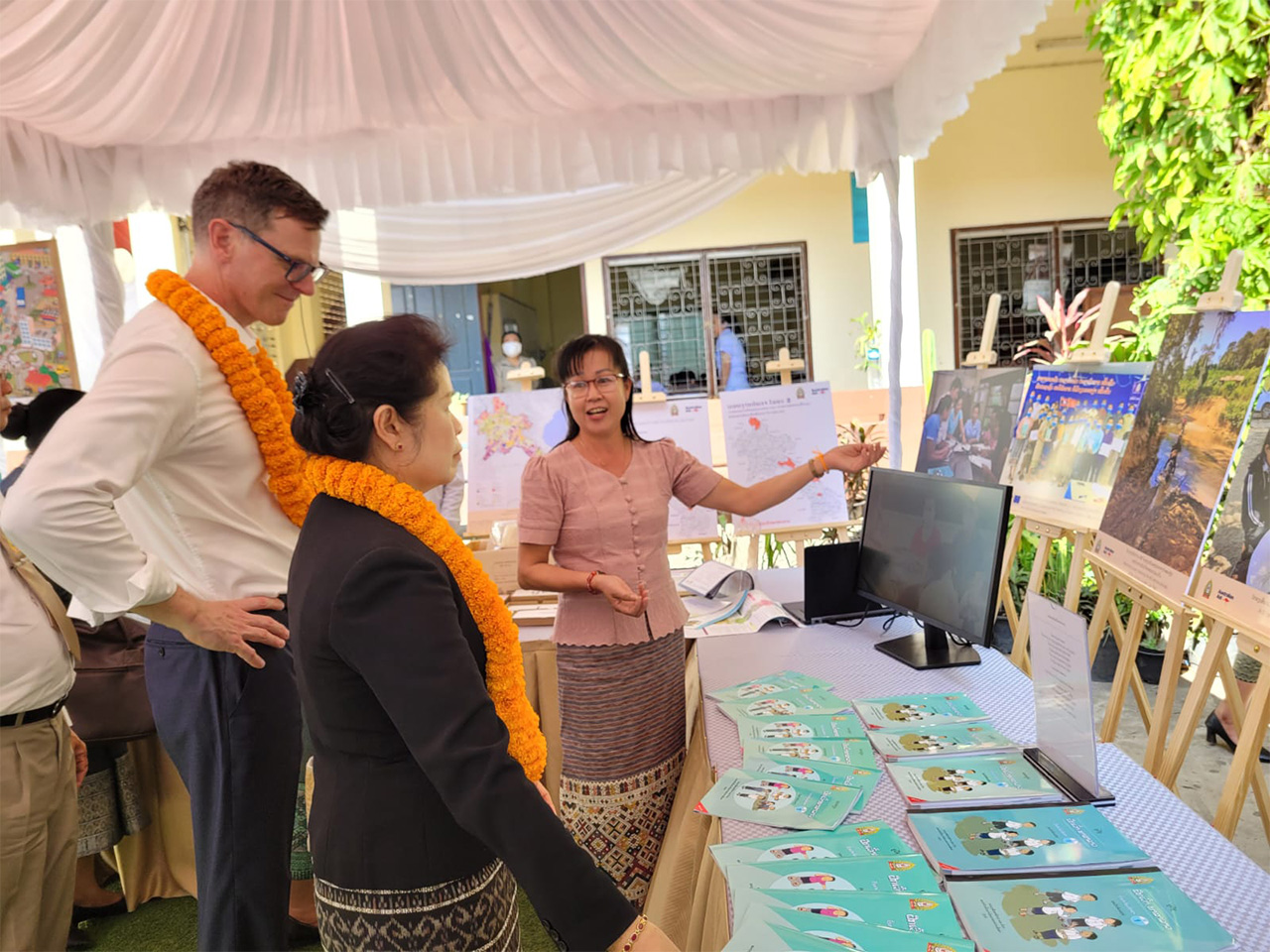
Ajan Phonesiri presenting the Spoken Lao Program to Vice Minister of Education and Ambassador of Australia
The revised materials will be used for an extended pilot in 21 districts across 10 provinces
Lao PDR is a culturally rich and diverse country, with four main ethnolinguistic groups incorporating over 50 languages. The mother-tongue of almost 40% of Lao people is a language other than Lao. The majority of students from remote and disadvantaged areas are likely to start their first year of school without knowing Lao language which is the language of instruction in schools. If students aren’t competent in the language of instruction, it is extremely challenging for them to understand the teacher, participate in activities and achieve the expected learning outcomes.
On 20-21 April, Dr. Onekeo Nouannavong, Director General of the Research Institute for Educational Sciences (RIES) was the chairman of the “Meeting for the Approval of Spoken Lao Program Teaching and Learning Materials”. Many stakeholders such as Assoc. Prof. Dr. Bounlerd Sengsoulin, Faculty of Letters of National University of Laos, Assoc. Prof Sengfa Holanoupharb, Senior retired staff, Mr. Khambai Khamsy, Senior retired staff along with the representative from Department of Teacher Education, General Education, Head of Divisions and staff from RIES attended the meeting. Ms. Phonesiri Outhaivanh, Head of Lao Language Teaching for Ethnic Groups Research Division, RIES, presented the revised materials. The Lao Language experts from the Approval Committee then made recommendations for the finalization and approval of the instructional materials.
In 2019, the Ministry of Education and Sports (MoES) and Australia through the Basic Education Quality and Access program in Lao (BEQUAL) launched the Spoken Lao Pilot to test a new approach for supporting students who are not competent speakers of Lao. The materials were piloted in four provinces during Phase 1 of BEQUAL program.
The pilot ended in June 2021 and was evaluated through baseline and endline testing of students in all control and treatment schools, as well as surveys with participating teachers and principals. The evaluation found that the Spoken Lao pilot was particularly effective in Phongsali province.
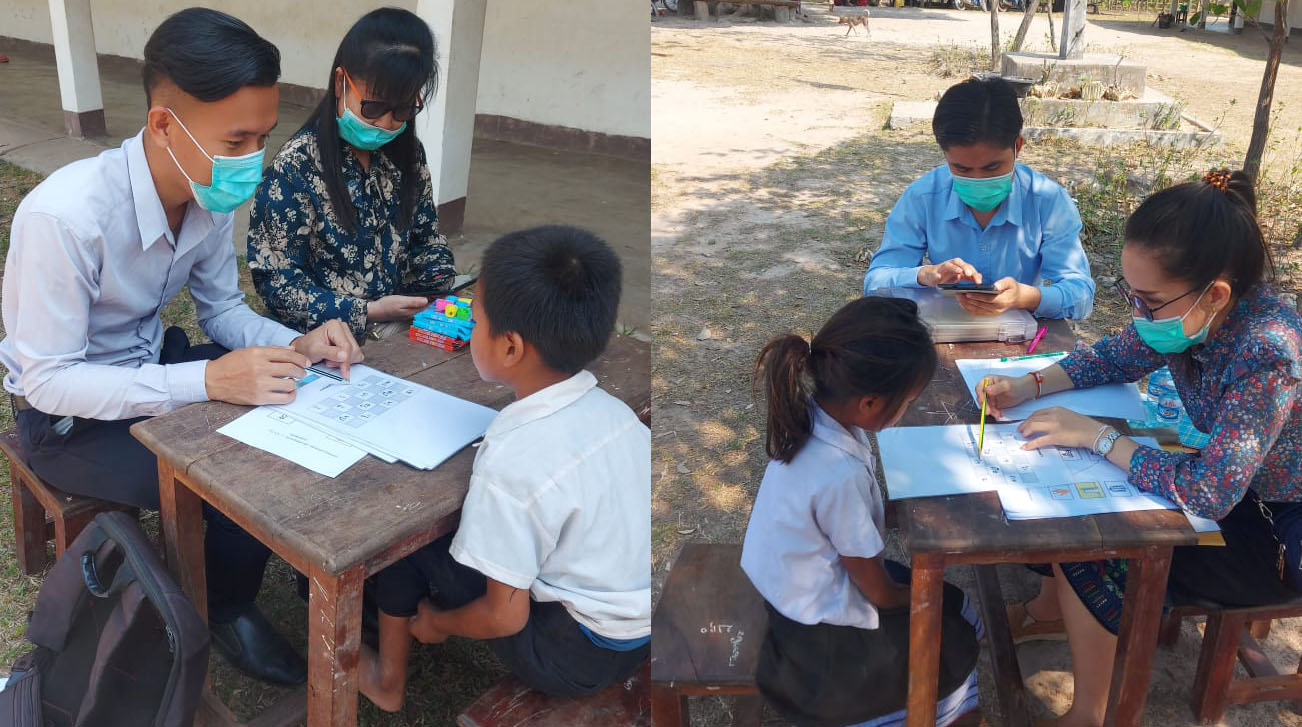
Students being assessed in one of the Spoken Lao Pilot participating schools
A case study with interviews and focus group discussions of principals, teachers and parents / caregivers was carried out in Phongsali in February 2022 to understand better the reasons for this success. In addition, a teacher consultation workshop was held in Salavan in April 2022 to collect further qualitative feedback on the teaching and learning materials and to present proposed revisions for feedback. The curriculum writers from the Lao Language teaching for ethnic groups research division led by Ajan Phonesiri analyzed the results to improve the materials presented today at the Approval Meeting.
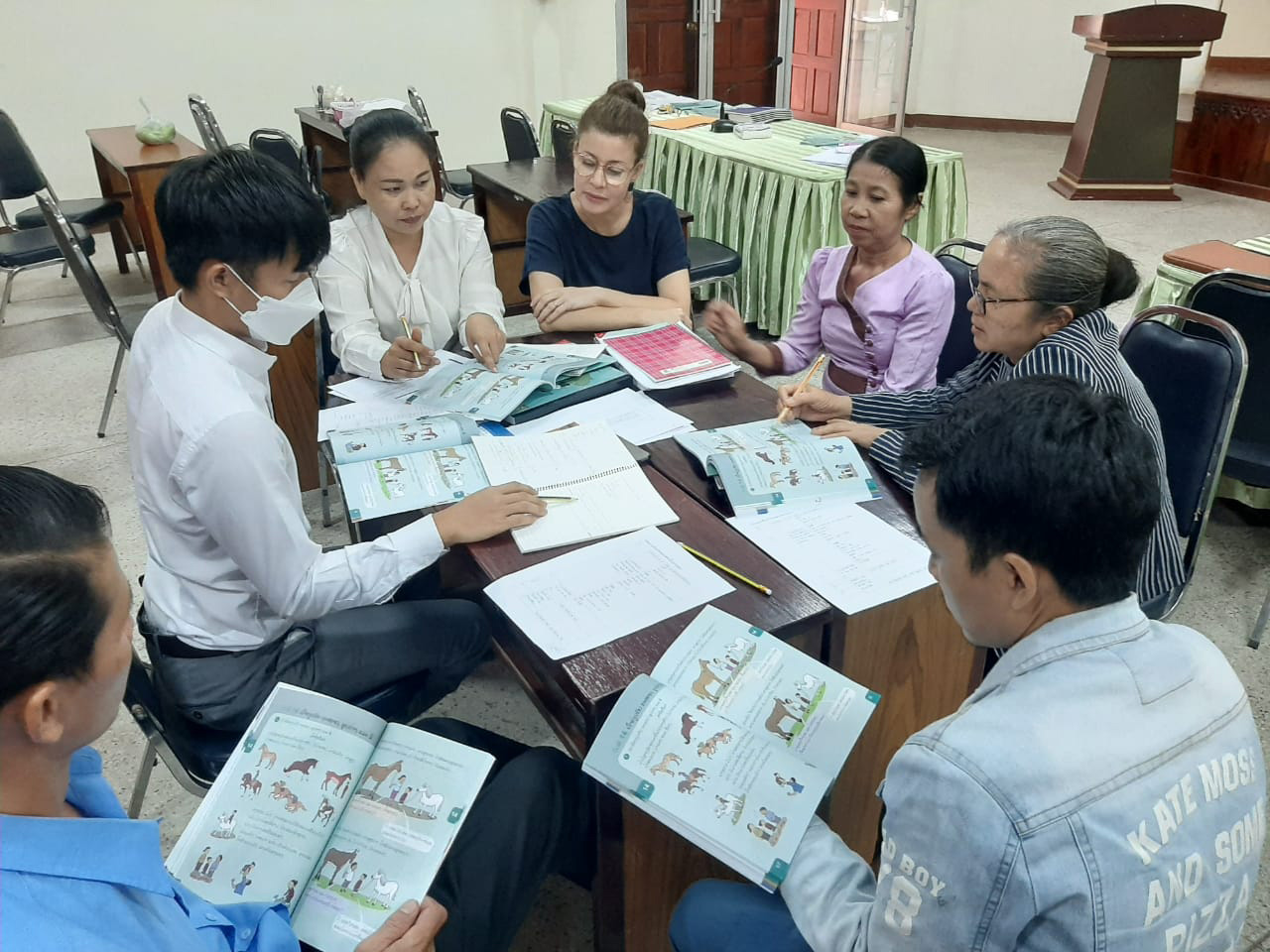
Curriculum writers revising the textbooks
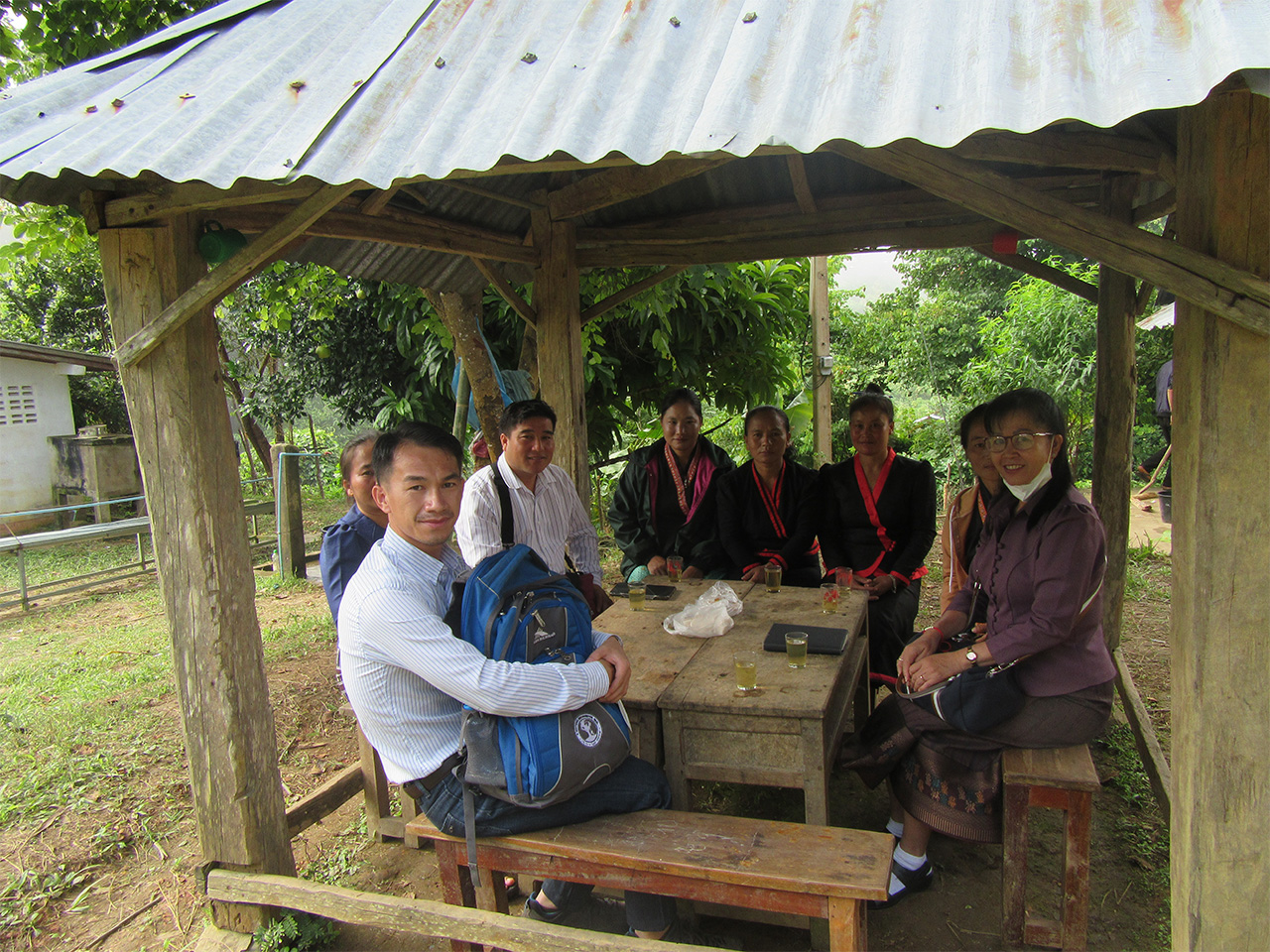
Team from RIES and BEQUAL monitoring the Spoken Lao Programme with classroom teachers
Ajan Phonesiri said “From the pilot, we understood better the amount and level of the content needed to suit Grade 1 students who are not native Lao speakers. Reflecting this learning, the content of the Spoken Lao program was then adjusted for these new materials”.
She added “Teachers and students were keen to have access to more Lao language teaching and learning resources, such as vocabulary cards, posters, games, and songs. We are planning for the development of those additional materials to ensure that children have as much access to fun and effective Lao language learning resources as possible.”
“Teaching a new curriculum is always challenging for teachers, especially in the first year, and the challenge was increased by COVID-19 because it limited support and monitoring. Some teachers were still developing their confidence to deliver the Spoken Lao pilot. In the revised version, training and ongoing support will be expanded and will include face-to-face and online options. We also revised the teacher guide to ensure that it is clear and user-friendly for teachers based on teachers’ feedback. We also developed guidelines for education administrators as well as community awareness communication on the program.”
The revised Spoken Lao Programme will be piloted in treatment and control schools in 21 selected districts of Phongsaly, Luang Namtha, Bokeo, Houaphanh, Xiangkhouang, Xaisomboun, Bolikhamxai, Khammouane, Savannakhet and Salavan. The pilot will start in September 2023. Grade 1 students from non-Lao speaking backgrounds will receive three to four additional hours of instruction a week to improve their ability to speak Lao language. Improved speaking skills build a strong language foundation, which also helps improve these students’ reading and writing skills. The participating teachers and district pedagogical support staff will receive the revised textbooks and teacher guides developed by RIES with support from BEQUAL, and training in how to teach spoken Lao lessons.
RIES with the support of Australia through BEQUAL looks at additional opportunities to provide learning opportunities for all teachers, on teaching students who do not speak Lao as their first language. A Teacher Development Video presenting 5 basic techniques for supporting those students from non-Lao speaking backgrounds was released last October 2022. The techniques are simple and can be easily applied in the classroom to ensure that all children have equal opportunities to participate in learning. And last month, the team from the Information Media Center was in Phongsaly to film the next episode of the Role Model docuseries on a teacher who explains how she is teaching students who are speaking other languages than Lao and how she is collaborating with and supporting other teachers and liaising with the community and the parents.
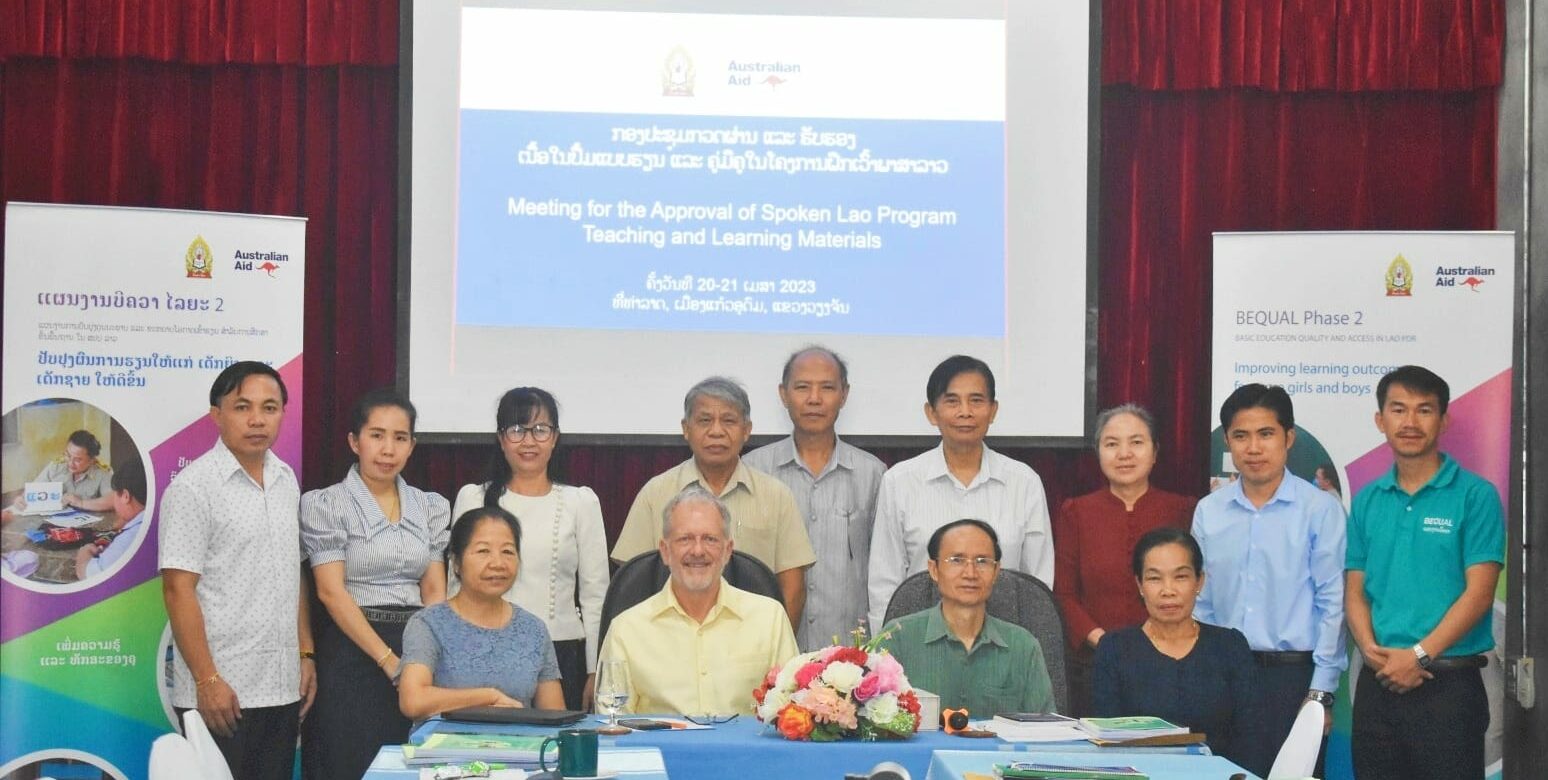
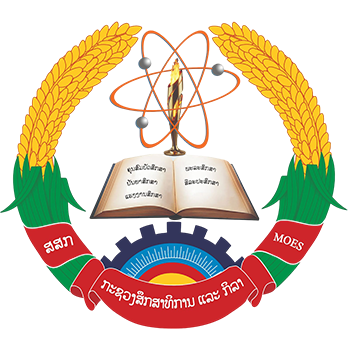


 ພາສາລາວ
ພາສາລາວ